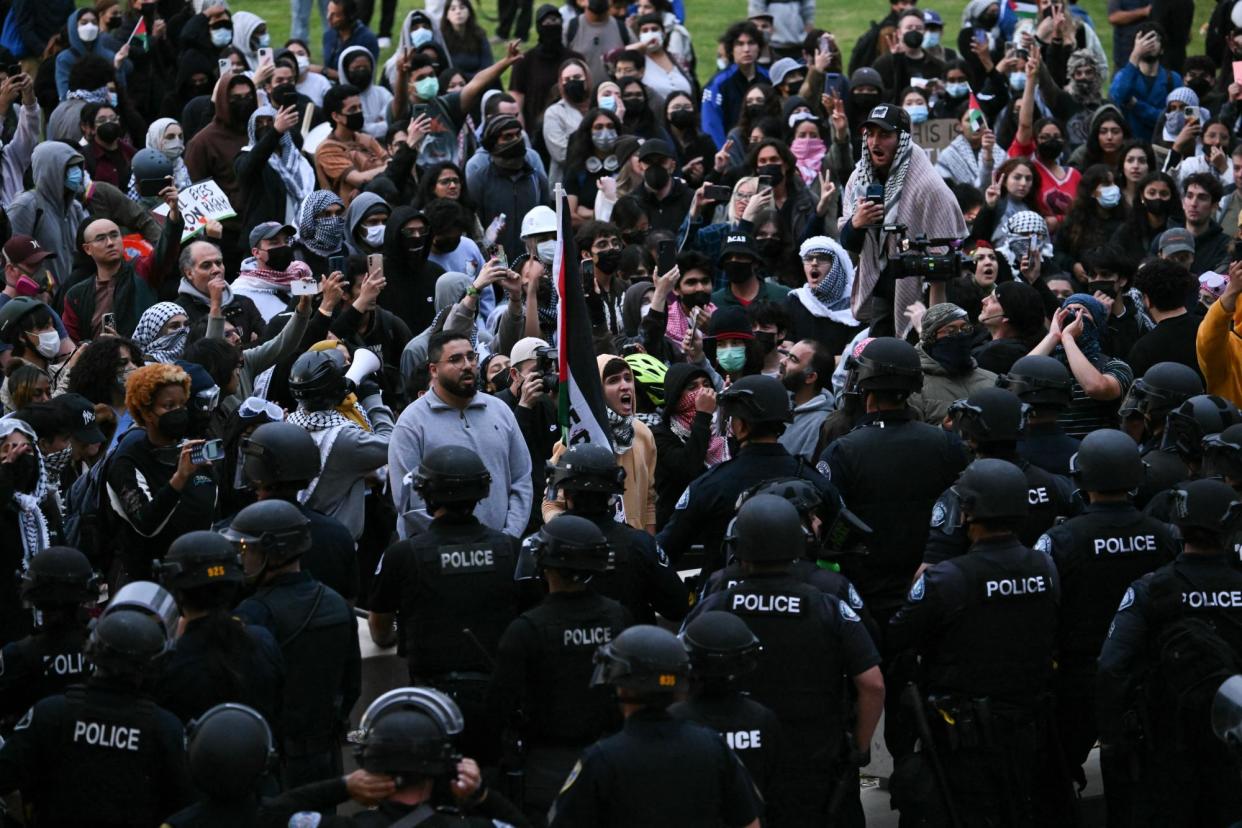Academic workers at UC Santa Cruz strike over crackdown on Gaza protests

Academic workers at the University of California, Santa Cruz, took to the picket line on Monday morning as part of a rolling strike in protest against the university system’s response to pro-Palestine demonstrations.
The campus is the first in the University of California to do so as part of a systemwide protest against the public university, which union members argue violated the rights of pro-Palestinian advocates and workers.
The United Auto Workers (UAW) union, which represents 48,000 graduate workers in California’s vast university system, voted to authorize a strike last week. The union has accused the University of California of unfair labor practices, including allowing violent attacks on pro-Palestine protesters, summoning police to arrest union members participating in protests, and unilaterally changing working conditions, among other charges.
Related: The story of the northern California college that inspired campus protesters across America
The strike is expected to cause widespread disruption within the University of California system, which has more than 280,000 students at its 10 campuses across the state.
Officials with the University of California have said the strike is illegal, violating their collective bargaining agreement, and has in turn filed an unfair labor practice charge against the union.
The action comes amid a huge wave of protests over the war in Gaza at universities across the US. In the last month, more than 3,000 people have been arrested on US college campuses as universities have cracked down on demonstrators and associated encampments with often militarized responses.
UC campuses have been the site of tense clashes, arrests and violence. In late April, a masked group of people marched on campus and violently attacked pro-Palestine protesters as law enforcement looked on without intervening for hours. Days later police raided the Gaza solidarity encampment on campus and arrested hundreds of people.
Last week at the University of California, Irvine, police officers arrested 50 people as part of a crackdown on a pro-Palestine encampment and threatened students and faculty with batons and munitions.
“Over the last two weeks UC has allowed appalling violence and intimidation against members of our academic community who exercised their right to protest,” Douglas Grion Filho, a union member at UC Santa Cruz, said in a video.
The union has described the university’s actions as “unlawful and unacceptable”.
The university has said the union’s demands are “political demands that are outside the terms of the collective bargaining agreement”.
“This strike is illegal,” Melissa Matella, the associate vice-president of systemwide labor relations, said in a statement. “UAW’s decision to strike over non-labor issues violates the no-strike clause of their contracts with UC and sets a dangerous and far-reaching precedent that social, political and cultural issues – no matter how valid – that are not labor-related can support a labor strike.”
The union has asked for amnesty for all academic employees, students, faculty and staff who face disciplinary action or arrest because of recent protests and divestment from weapons manufacturers and other companies profiting from the war in Gaza.
The union has opted for rolling strikes among the campuses, beginning at UC Santa Cruz, where there are roughly 2,000 members.
“The ball is in UC’s court – and the first step they need to take is dropping all criminal and disciplinary proceedings against our colleagues,” Rafael Jaime, the president of UAW 4811, said in a statement.
While graduation season is in full swing, protests have continued to roil US universities. Drexel University in Philadelphia has remained on lockdown as protesters have ignored the campus president’s request to disband a pro-Palestinian encampment.
The Drexel president, John Fry, described it as “intolerably disruptive”. Protesters have accused the university and city police of harassment.
The Associated Press contributed to this report

